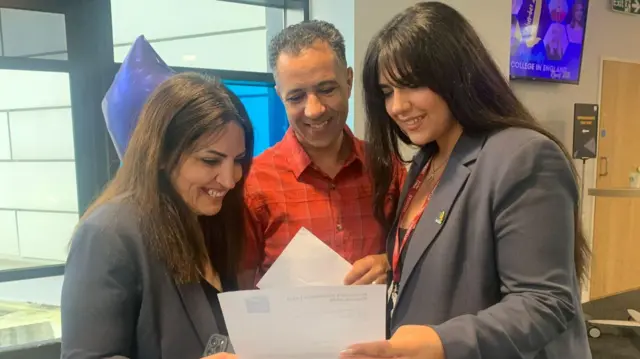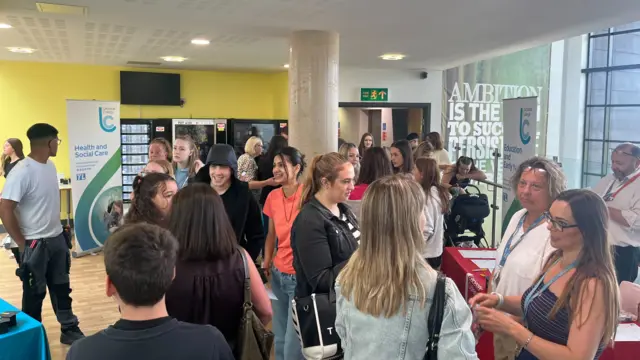If you've received results today, there's plenty to think aboutpublished at 13:36 BST 15 August 2024
 Malu Cursino
Malu Cursino
Live reporter
We're going to wrap up our question and answer session here - scroll down for lots of useful information from our panel of experts.
As career and clearing advisers have said many times today: you have options.
An apprenticeship may be the next step for you - or getting straight into work, resitting exams, or heading to university. It's up to you.
Let's now turn to some of the latest news and analysis.











